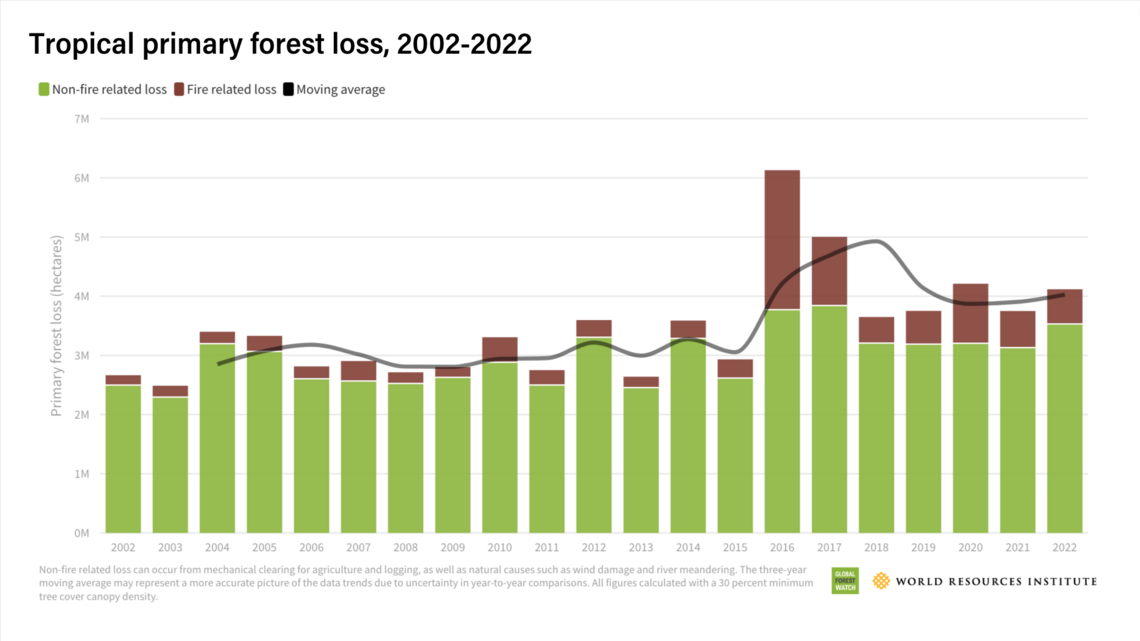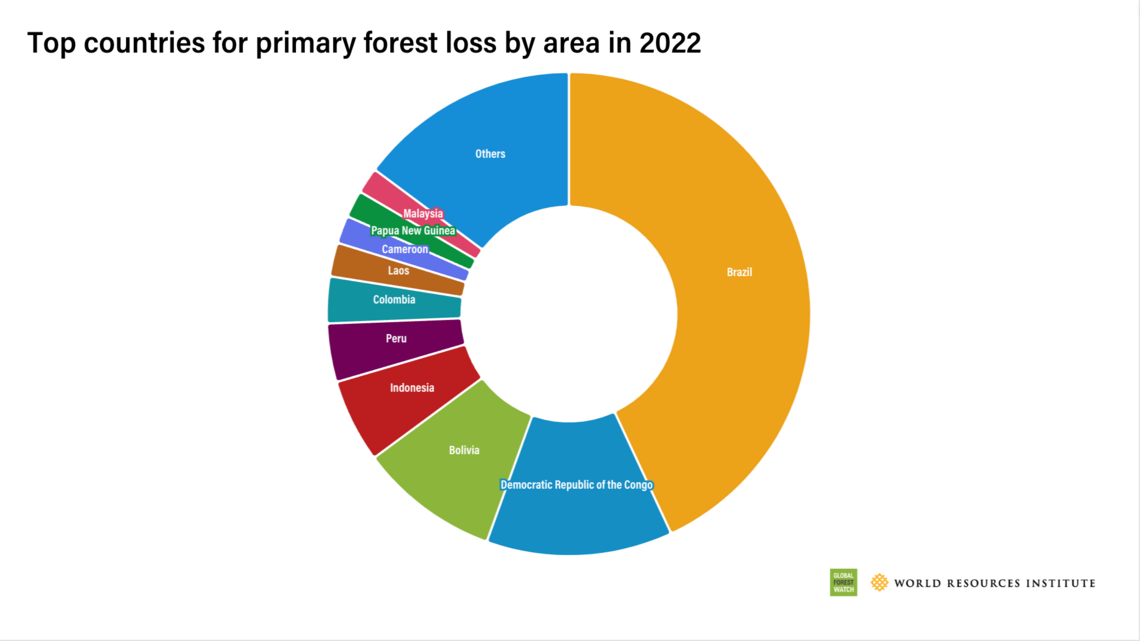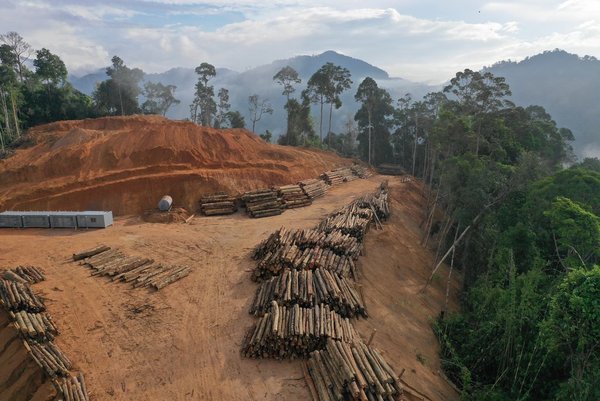 Read this article in French
Read this article in French- Share this article
- Subscribe to our newsletter
High rainforest loss in 2022
The tropics lost ten per cent more primary rainforest in 2022 than in 2021, according to new data from the University of Maryland/USA which is available on the Global Forest Watch platform of the World Resources Institute (WRI).
Tropical primary forest loss in 2022 totalled 4.1 million hectares, the equivalent of losing 11 football (soccer) fields of forest per minute. All this forest loss produced 2.7 gigatonnes (Gt) of carbon dioxide emissions, equivalent to India's annual fossil fuel emissions.

This increased forest loss comes in the first year after heads of 145 countries vowed in the Glasgow Leaders’ Declaration on Forests and Land Use to halt and reverse forest loss by the end of the decade, recognising the important role of forests in combatting climate change and biodiversity loss. Instead of consistent declines in primary forest loss to meet that goal, the trend is moving in the wrong direction. Indeed, humanity is not on track to meet major forest-related commitments, WRI experts warn.
At the national level, while primary forest loss ticked up in the two countries with the most tropical forest, Brazil and the Democratic Republic of the Congo, it rapidly increased in other nations like Ghana and Bolivia. Meanwhile, Indonesia and Malaysia have managed to keep rates of primary forest loss near record-low levels.

Brazil remains the country with the most tropical primary forest loss by far — in 2022 it accounted for 43 per cent of the global total. In Brazil, the rate of primary forest loss increased by 15 per cent from 2021 to 2022, with the vast majority of primary forest loss happening in the Amazon. Non-fire-related losses, which in the Brazilian Amazon are most often due to clear-cut deforestation, reached the highest level since 2005.
This high rate of primary forest loss occurred during the last year of Brazil President Jair Bolsonaro’s administration. Forest loss in Brazil decreased dramatically in the early 2000s under President Luiz Inácio Lula da Silva (Lula), but recent increases have coincided with the Bolsonaro administration’s eroding of environmental protections, gutting of enforcement agencies, attempted granting of amnesty for illegal deforestation and attempted weakening of Indigenous rights.
The re-election of President Lula, sworn in on January 1st, 2023, may reverse that trend. He and his administration have promised to end deforestation in the Amazon and other biomes in Brazil by 2030, combining command and control actions with a more long-term perspective around sustainable economic development. This will not be an easy task, with some officials cautioning that there may not be visible progress until 2024 at the earliest as enforcement agencies are re-equipped and re-staffed and illegal activities investigated, according to WRI.
While recent years have seen new international ambition and the recognition of the urgent need to end deforestation, the lack of progress in slowing forest loss in the tropics underscores the need to move beyond political commitments to action, WRI experts say. While some countries have shown promising results in reducing forest loss, such as Indonesia and Malaysia, others have seen continued activities and policies that are causing acceleration of deforestation in critical areas. Protecting forests remains one of the most effective ways to mitigate global climate change and protect the people and biodiversity that depend on them - but time is running out.
(WRI/ile)
Visit the Global Forest Watch website





Add a comment
Be the First to Comment